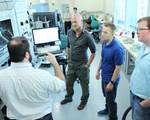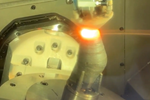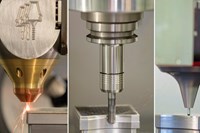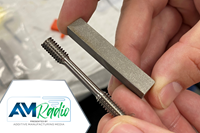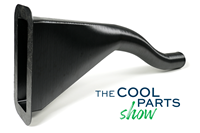Titan, Jabil Customize Formulations for Pellet Extrusion 3D Printing
Partnership qualifies and integrates customized materials for use on Titan’s pellet-based Atlas 3D printers to produce stronger, lighter and more flexible parts.
Share
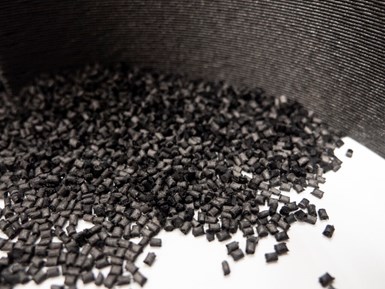
Titan and Jabil are testing and validating new pellet formulations of Jabil’s carbon fiber-reinforced nylon materials, which are designed to produce stronger, lighter and more flexible parts.
Titan Robotics is collaborating with Jabil Inc. to accelerate the adoption of large-format, industrial additive manufacturing (AM). Jabil Engineered Materials, a unit of Jabil which develops polymer formulations and compounds, is working with Titan to qualify and integrate customized AM materials for use on Titan’s pellet-based Atlas 3D printers.
The companies are working together to drive the production of large-format tooling for applications in sheet metal forming, composite layups, welding fixtures, molding, casting patterns and end-use parts on Titan Atlas printers in order to meet a growing need for increased part strength and faster printing speeds. Jabil is combining its specialized materials science expertise with Titan’s robust printing performance to address a growing number of rigorous industrial, medical, defense and aerospace applications.
“Titan and Jabil are fulfilling a joint mission to move additive manufacturing into serial production and advanced manufacturing,” says Bill Macy, Titan Robotics partner and CTO. “By choosing Jabil’s engineered materials customized for applications with high-throughput pellet printing on the Atlas, we can help customers reduce costs, create products with mass customization, reduce cycle times and innovate quickly.”
Titan and Jabil are testing and validating new pellet formulations of Jabil’s carbon fiber-reinforced nylon materials, which are designed to produce stronger, lighter and more flexible parts. “Jabil takes a polymer science approach to developing engineered materials,” says Matt Torosian, director of additive product management at Jabil. “All of our materials are designed exclusively for additive manufacturing, so Titan receives pellets that embody all the necessary attributes to optimize performance and reliability.”
According to the companies, the collaboration gives customers greater choices from a wide variety of high-performance pellet materials as well as the opportunity to create custom compounds to address specific requirements. This partnership validates materials before customers print extremely large and costly, high-end final parts.
Related Content
-
How to Build 10,000+ Shot Molds in Hours
Rapid tooling isn’t so rapid when it takes days to 3D print a metal mold, and then you still must machine it to reach the necessary tolerances. With Nexa3D’s polymer process you can print a mold in hours that is prototype or production ready and can last for more than 10,000 shots.
-
Drones Take Flight with Metal and Polymer 3D Printed Parts: The Cool Parts Show Bonus
Drones produced by Cobra Aero now incorporate many 3D printed parts made through laser powder bed fusion and Multi Jet Fusion processes.
-
3D Printing with Plastic Pellets – What You Need to Know
A few 3D printers today are capable of working directly with resin pellets for feedstock. That brings extreme flexibility in material options, but also requires greater knowledge of how to best process any given resin. Here’s how FGF machine maker JuggerBot 3D addresses both the printing technology and the process know-how.

